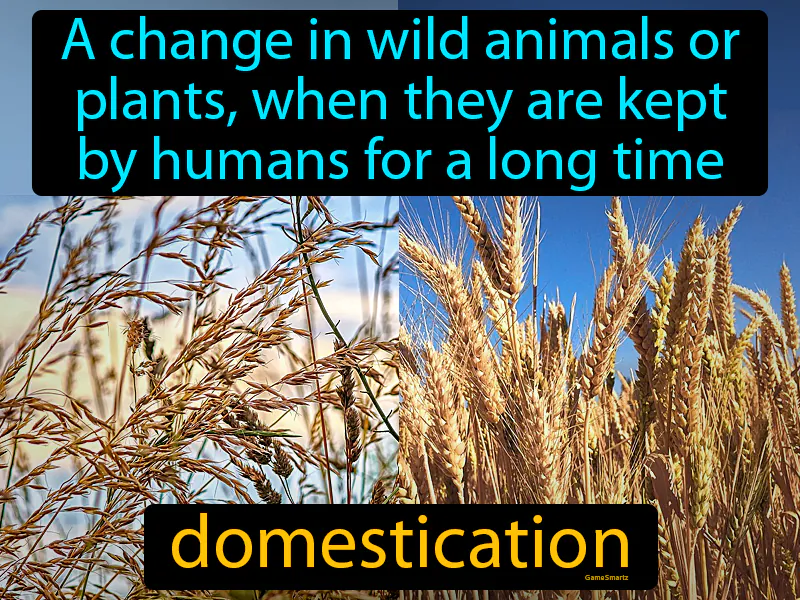Domestication
Domestication: Easy to understand
Domestication played a crucial role in the transition from nomadic hunter-gatherer societies to settled agricultural communities during prehistory up to 300 BC. It allowed early humans to cultivate plants and breed animals for food, labor, and companionship, providing a stable food supply and enabling population growth. This change addressed the problem of food scarcity and helped form the foundations of modern civilization by encouraging the development of permanent settlements. Today, domestication continues to impact our lives through agriculture, as many of the foods we eat come from domesticated plants and animals. For example, the milk you drink likely comes from domesticated cows, which affects not only your daily diet but also the agricultural industry and economy.

Practice Version

Domestication: A change in wild animals or plants, when they are kept by humans for a long time. Domestication. Domestication is the process by which humans have tamed and bred wild species for farming, companionship, or work throughout history.